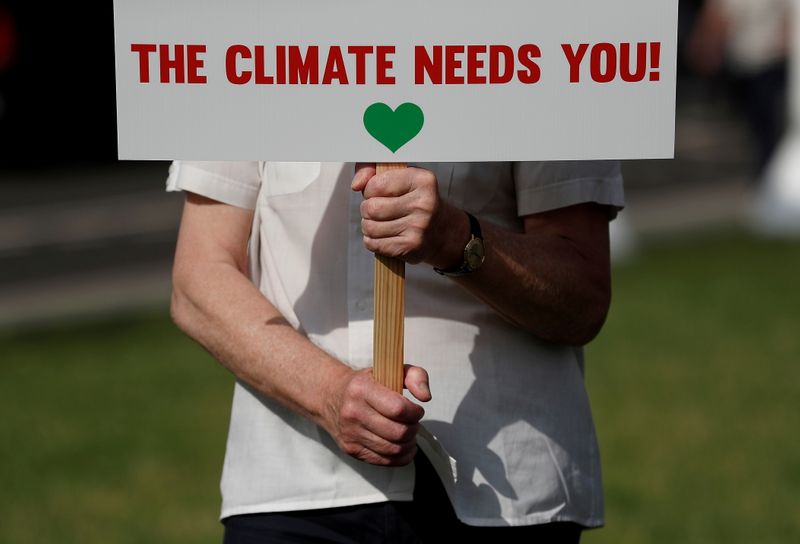By Andrea Januta
(Reuters) - Scientists are finalizing a long-awaited U.N. report updating the scientific consensus on climate change and the increasing risks it poses across the world.
Coming out Monday, the report by the U.N.'s Intergovernmental Panel on Climate Change (IPCC) will analyze thousands of studies published since the last IPCC scientific assessment https://www.ipcc.ch/report/ar5/syr in 2013.
Filled with detail and tracing multiple future scenarios, the report is likely to run hundreds or even thousands of pages. New research and major developments in computer modeling and data collection will make this report the most comprehensive yet.
Here are five key things to watch for:
1. SCIENTIFIC CONFIDENCE
There is new research in nearly every area of climate science, including past and future atmospheric warming, as well as ongoing impacts on the world's oceans, glaciers, sea levels, land habitats and other global systems.
The report will also discuss "extreme event attribution," or the science of determining whether and how much climate change played a role in specific weather events. Attribution science has grown rapidly over the past decade and has allowed scientists to more directly link climate change to disasters such as the 2017 hurricane flooding in Houston, the 2019-2020 wildfires in Australia, and this year's deadly heat wave in the Pacific Northwest.
Findings and conclusions in the report come with labels denoting the level of scientific confidence. A label such as "very high" signals more certainty, while a "very low" label would mean the issue is still up for debate.
2. FIVE FUTURES
This year's report will include five hypothetical scenarios used to project climate change over the next century, depending on when and by how much humans curtail greenhouse gas emissions.
While the IPCC report cannot anticipate which path humanity might follow, these scenarios -- called Shared Socioeconomic Pathways, or SSPs -- describe possible directions the world might take, modeling different socioeconomic factors such as population growth and land use changes.
The last report in 2013 had four simpler scenarios.
3. CARBON BUDGET
A key number in this report will be the revised carbon budget, or the amount of additional greenhouse gas emissions that can be released before the Paris Agreement's 1.5-degree goal is pushed out of reach.
A 2018 special report https://www.ipcc.ch/sr15 by the IPCC estimated that the world's remaining carbon budget could be depleted in about a decade unless global emissions were curbed. However, there were "substantial" uncertainties around that estimation, the report noted, such as whether climate change might thaw Arctic permafrost and release carbon long locked in the ice.
The carbon budget can be one of the more contentious numbers in the report, IPCC scientists say. The report must be approved by consensus by all government representatives present.
4. REGIONAL DETAILS
For the first time, the IPCC will include regional breakdowns of its findings and projections.
Climate change is being felt unevenly around the world. Some regions are warming more quickly than others. Some are getting rainier. Some are seeing more extreme sea level rise.
By including localized information, the report aims to better arm governments with data on how their regions will be affected and what to prepare for. An interactive dashboard posted online will let people explore data specific to their regions.
5. WEATHER EXTREMES
Another new section will focus on extreme weather, which has dominated headlines for years as governments contend with record-breaking floods, fires, heat waves, and other deadly extremes.
This section will delve into various types of extreme weather, the ability to forecast those extremes through computer simulations, and any natural mechanisms or feedbacks that lead to extremes.

While extreme weather is not common, it makes up an oversized share of the life and economic losses caused by climate change, and some types of extreme weather have already increased in frequency because of climate change.
IPCC reports typically focus on most likely climate scenarios, but this time will also look at low-probability events that nevertheless could be very damaging.